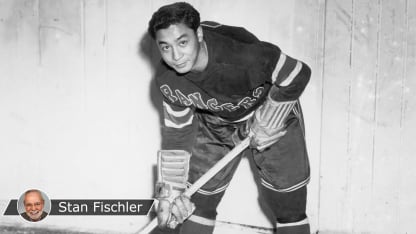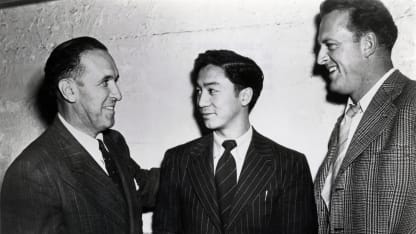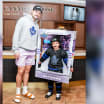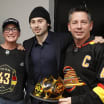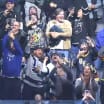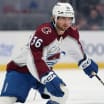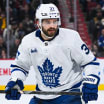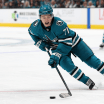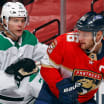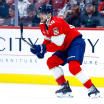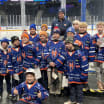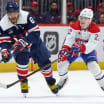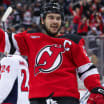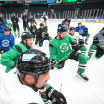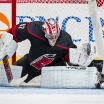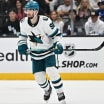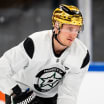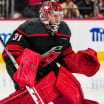In 1942 a Chicago Black Hawks scout invited Kwong, then 19, to a pro tryout, but he never made it. The Canadian government refused the documentation required for him to leave Canada.
"World War II was on so I joined the (Canadian) Army and wound up in Red Deer, Alberta," Kwong said. "We had a service hockey team and two of my teammates were (former New York Rangers) -- Mac Colville and 'Sugar' Jim Henry."
The Rangers alums recommended Kwong to New York's hockey boss Lester Patrick, who scouted Kwong after his Army discharge and invited him to the Rangers training camp in 1946.
The fact that Kwong measured only 5-foot-6, 150 pounds wasn't a problem since he knew how to get around the big guys. The Toronto Globe and Mail described Kwong as "a doodlebug on skates."
The Rangers assigned him to the New York Rovers of the Eastern Hockey League. Kwong made his debut in the United States against the Boston Olympics on Oct. 27, 1946, and scored a goal.
"Larry attracted fans because he was good and also was our first Chinese-Canadian player," Rangers publicist Stan Saplin said. "Before one game, the unofficial 'mayor' of Chinatown, Shavee Lee, came to The Garden with two Chinese showgirls and gave Larry the keys to Chinatown. He even got a nickname, 'The China Clipper.' Everybody loved him."
Me included. As a 14-year-old fan, I attended every Rovers game and rooted for Kwong, who centered a line with future Ranger Nick Mickoski and Hub Anslow. Kwong made that line click.
In 1947-48, Kwong emerged as the Rovers leading scorer. Later that season, Rangers coach Frank Boucher told Kwong to meet the big club in Montreal for a game against the Canadiens on March 13, 1948.
